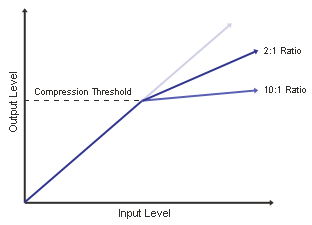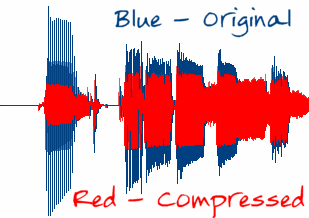We had a sound mixer came as a guest lecturer. During his speech he mentioned "We have to apply audio compression to increase a sound's overall intensity". Can someone please say what does that mean?
Thanks for your time.
Thanks for your time.




